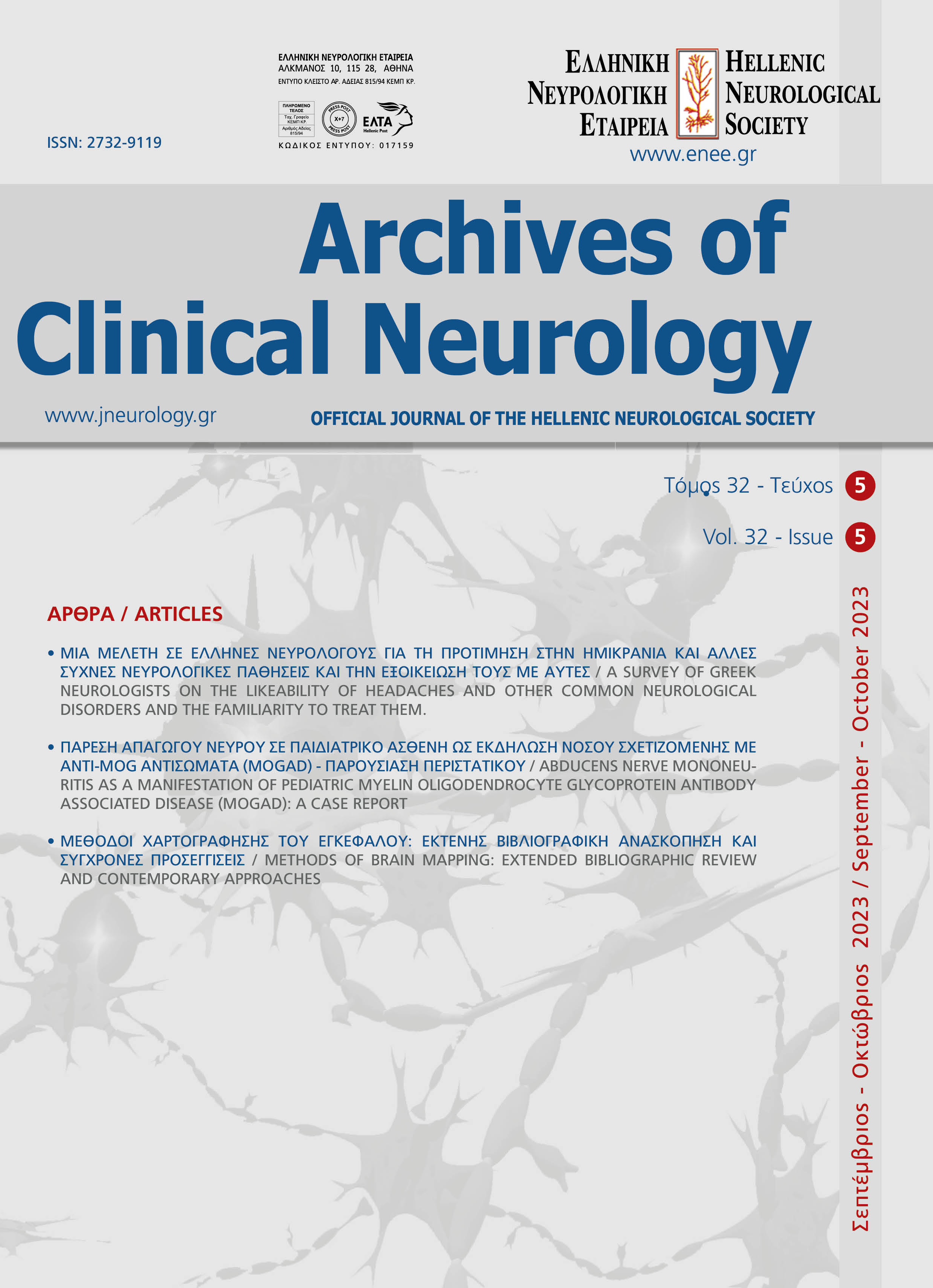ΑBDUCENS NERVE MONONEURITIS AS A MANIFESTATION OF PEDIATRIC MYELIN OLIGODENDROCYTE GLYCOPROTEIN ANTIBODY ASSOCIATED DISEASE (MOGAD): A CASE REPORT
Keywords:
MOG-ab, MOGAD, abducens nerve, cranial mononeuritis, case reportAbstract
Introduction:
Antibodies targeting myelin oligodendrocyte glycoprotein (MOG-ab) have been reported as one of the causes of demyelinating syndromes of the central nervous system. It's also well established that MOG-antibodies are found more often in pediatric patients presenting with demyelinating events. Recent studies have shown the expanding clinical spectrum of MOG-antibodies-associated disorders giving birth to the term MOG antibodies-associated disease (MOGAD).
Case report:
Herein, we report the case of a 2,5-year-old boy, who presented with acute isolated left sixth cranial nerve palsy. The only abnormal laboratory test finding in our patient was the presence of IgG1 MOG-ab in the serum. The patient recovered fully after treatment with methylprednisolone.
Conclusion:
This case proposes the abducens nerve mononeuritis as a possible phenotype of MOGAD and highlights the need for MOG-ab testing in children with isolated cranial mononeuritis. To our knowledge this is the first report of this kind of disorder.


